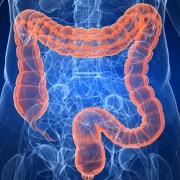 Photo: Getty Images
Photo: Getty Images
While spending the last two weeks in Paris, I really took notice of how people tend to linger over their food and the relative lack of fast food options. This made me think about abdominal bloating and how I hear it as a common complaint for women.
Digestion starts in the mouth. When you put that bite of food up to your lips, you first smell it which gets the digestive juices flowing in anticipation. This should also start to switch you into a parasympathetic state, or "rest and digest" so you can digest your food.
How many of you stop, relax, and chew your food? Even those in Paris buying fast food appeared to take it to a park setting where they sat on a bench or on the grass and enjoyed their surroundings. Here in the States I see many people rushing through lunch, on their phone, reviewing notes, driving, in a hurry, and wolfing it down as quickly as possible. Even if your lunch consists of a healthy salad, how many of you are stopping to eat? Or are you multi-tasking? This means your body isn’t switching into that "rest and digest" mode like it should, perhaps contributing to your irritable bowel like symptoms.
Chewing is important because it breaks down your food and mixes it with your saliva to begin the digestion process. Those who don’t chew well (or appear to swallow things whole!) often experience gas, bloating, and general abdominal irritation because those large food particles take a lot longer to break down in the intestines, causing more work for your good bacteria.
Speaking of good bacteria, what happens if yours is out of balance? There are numerous studies that show repeat antibiotic use can cause problems such as gas, bloating, diarrhea, and more. Additionally, if you aren’t chewing your food well and don’t switch into a more parasympathetic state while eating, then the unbalance worsens. So, what do I recommend?
First, make a conscious decision to sit quietly when you eat most of the time. Think about what you’re doing, not what is on your phone, computer, or desk. Try not to eat on the run, in your car, or while standing and multi-tasking.
Second, chew your food! Don’t swallow large chunks whole. In my field, I hear colleagues suggest everything from "chew each bite 21 times," to "chew until it’s mostly liquid." I know this sounds like you’ll be chewing forever, but try it and see if it makes a difference in your digestion. You might even notice that you feel full before you thought you did.
Third, take a good quality probiotic supplement. There are a number of yogurts on the market with a probiotic effect, however they are often full of sugar that only worsens the bacterial unbalance. Look for one that has cultures in the billions (not millions), is refrigerated and has the research to back up that what’s in the capsule will make it into your intestines.
References:
1) Kong F, Singh R. Disintegration of solid foods in human stomach. J. Food Sci. 73 (5): R67–80.
2) Grundy D, Schemann M. Enteric Nervous System. Curr Opin Gastroenterol. 2006;22(2):102-110.






Add a CommentComments
There are no comments yet. Be the first one and get the conversation started!